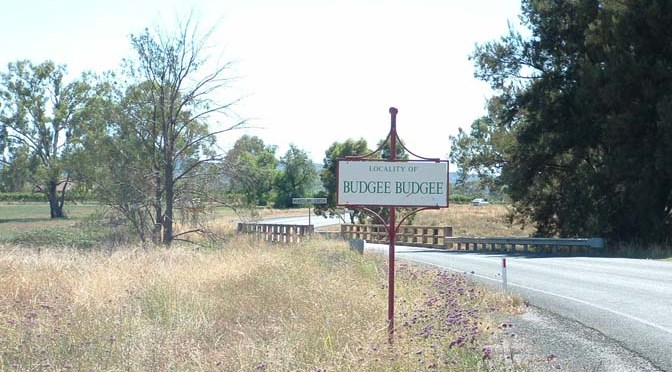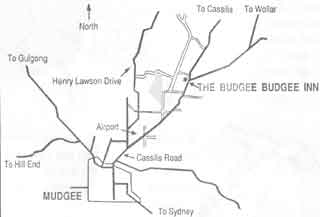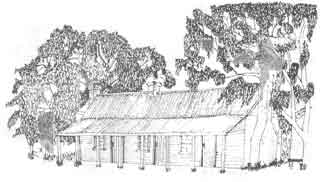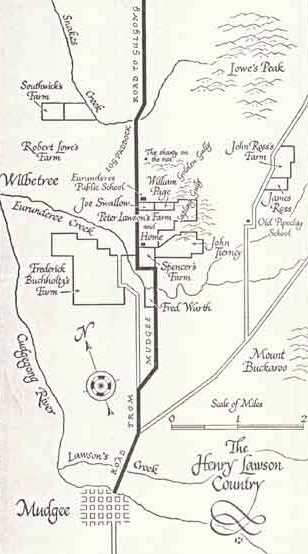Norman wrote three columns about Budgee Budgee published on 13th, 20th and 27th April, 2009.
Jack Stanford, now living in retirement in Mudgee with his wife Edna invited Norman to visit him.
Jack was born in Budgee Budgee and lived most of his life in the area around Black Springs Road where he and Edna raised their family on an orchard property. Black Springs Road was named for springs of water close to a house owned by Tudor Allen. In one spring the water is black whilst in another it is blue.
As Jack reminisced about his life Norman made notes: Jack thought that Budgee Budgee was Aboriginal meaning “plenty, plenty” or plenty of water.
The reason “five corners” can no longer be found in the Budgee Budgee locality is because the farms in the early days of settlement usually had flocks of sheep. The sheep ate the “five corners” to the root stock whereas cattle did not touch them. The plant mainly grew on the side of a hill.
In 1930 there was an extreme drought and a lot of local vegetation died. Jack recalled when he was aged about 18 the temperature was 100 degrees Fahrenheit for a month. Apparently St John’s Wort is a recurring curse but can be eradicated by persistently spreading pure salt on new growth.
The names “Pipeclay Creek” and “Pipeclay Lane” appear to have been called after the area once known as “ Pipeclay” but it may have previously been another name now unknown. How it came to be called “Pipeclay” is also unknown but it may have been because the clay in the creek was suitable for making clay pipes used to smoke tobacco.
Jack had an interesting story to relate about the Ulan Road Pipeclay Creek Bridge. Before the bridge was built there was a ford crossing about 50 metres on the western side of the bridge. The remains of the crossing are still visible. On at least three occasions when Pipeclay Creek was in flood people were drowned whilst attempting to cross. Their horse and buggies were swept away. Jack thought they were a Mr Box, a Mr Brack and local poet Kevin Pye’s great grand parent.
Jack recalled that a teacher who taught French at Mudgee High School and his wife, a teacher at Mudgee Public School, were often stranded when the creek flooded. Often they had to travel to Mudgee via School Lane joining up with a road to Mudgee to the West.
Jack was able to pin point the exact location of the Huxley Butcher shop. It still exists in a building which in the 1980s was the scene of a herb farm and shop next to what was then Bramhall Winery.
The story of gold being found close to the Budgee Budgee Inn valued at £3000 was confirmed with the added anecdote that many believe gold can still be found in the vicinity but he was never lucky enough to find any.
Jack was asked about his ancestors. His mother was from the Roth family and he attended the family re-union in 2008 held in Mudgee.
Subsequent to Norman talking to Jack Stanford he met up with Lee Paine who reminded him that her family lived in Budgee Budgee when they migrated from England in 1950. Her parents, Jack and Norah Hodgkinson lived with their family in a little old house in a paddock near what is now Box Lane. Only the chimney remains standing today.
Jack was a carpenter and builder who renovated the house to make it habitable. Lee lived there for approximately six months before she left to become a teacher at Newcastle Teachers’ College.
Lee recalled that on one occasion the school bus could not make the Pipeclay Creek crossing due to a flood. Lee thought the bridge was built in the 1960s after the family had moved to a house in Eurunderee.





You must be logged in to post a comment.